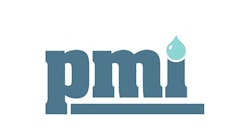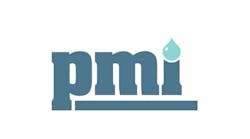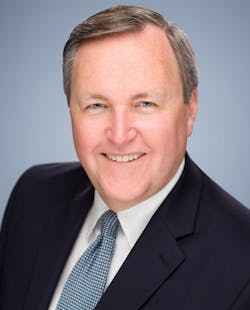Latest from Industry Perspectives
Sponsored
Innovation, Regulation and the State of Plumbing Manufacturing

Kerry Stackpole is CEO and Executive Director for Plumbing Manufacturers International, the voluntary, not-for-profit association of plumbing product manufacturers. The core mission of PMI is to promote the water efficiency, health, safety, quality and environmental sustainability of plumbing products while maximizing consumer choice and value in a fair and open marketplace.
The new administration in Washington has either enacted or signaled its intention to enact big changes in both regulation and international trade, two areas of key concern to PMI. We recently spoke with Stackpole about his take on the current climate, and where the focus of the association would be in the weeks and months to come.
CONTRACTOR: You wrote a recent piece in the PMI newsletter about “binary thinking” and how it seems to have gripped the country’s political class, particularly when it comes to regulations. Can you talk a little about that?
Stackpole: We've been operating increasingly in this “on-or-off” environment. You know, it's either this or that, and what we've all learned is that what you’re realistically looking for is the middle ground. That's how you get things done. Congress struggles with that right now. This expectation that everything has to be black or white, and that's not really the world we live in anymore.
I think binary thinking sometimes forces us into a frozen position for no good reason. For example, over in California, you're going wrestle with this question of 1.1 gallon per flush toilets. But in other places in the country, you're really going to have to do something different.
CONTRACTOR: It’s a similar situation to what water heater manufacturers are dealing with. California is raising energy efficiency standards while the feds, the Department of Energy, is lowering them.
Stackpole: If you went and looked at faucets or shower heads, you could buy a showerhead that put out 1.1 gallons of water when the national standard is 2.5—there's a range of products to suit every market, really.
Another example is in water filtration. Many of our members—whether it's Delta Faucet or Moen or any number of companies—have all responded well to the desire of some consumers to find a way to deliver more pure water. For example, Delta Faucet was showing a unique ozone filter faucet [at the recent KBIS Show].
Other of our manufacturers have found ways to reduce the volume of water that is set aside in a filtration system. You know the reverse osmosis system, in its early development, used up a lot of water before it produced a gallon of clean water. Now they've found systems that can do that with much less wastewater in the stream. So we’ve seen a lot of that kind of evolution.
There’s a lot of focus on schools tied to the concern about lead pipes and the quality of water in schools. That's now starting to influence parents who are saying, well, wait, if the water in the school down the street from my house isn't so great, what kind of water do I have at home? And so some of them are now expressing interest in that kind of filtration system, or at least testing the water to make sure that they know what they're getting in their tap at home.
There’s a whole range of products for every market, really. I mean it's fascinating and that was true with faucets and showerheads as well.
CONTRACTOR: Doesn’t that put a higher burden back on the manufacturers? More R&D, investment in facilities, in workforce, in training that workforce?
Stackpole: I think it does. But variety is the spice of life. Let me give you an example. Kohler introduced an ice bath at KBIS, it’s a tub you can climb into and set the temperature to 39°. Now, personally, I might say, gee, I don't think I ever want to climb into an ice bath. But the reality is that there are people who benefit from it, and these people now have access to something that will allow them to recoup and recover.
Now that’s a new market that's developing. I think the manufacturers enjoy finding those opportunities. I think their teams enjoy figuring out what’s coming, what’s next.
CONTRACTOR: Do you think the demands of the current marketplace favor the larger manufacturers over the smaller manufacturers?
Stackpole: I think that for any startup—any early-stage company—it's going to be a struggle, absolutely. But that’s the nature of starting a new business. And our business—I’ll just say this in a blunt way—our business is not simple. There's a huge amount of regulation. One of the great discoveries for me coming into this position eight years ago was the reality of how much regulation there was.
So, when entrepreneurs come into the business, many times they don't realize how much regulation there is… The limitations of the water codes and standards are so preset. There’s a number of folks who are working on recycling showers and those things are great, but most of them don't meet code right now, and so that becomes a design issue. I think that's always a challenge for the smaller folks. The bigger manufacturers, they obviously have more resources, both to develop their products and to advertise and promote their products.
CONTRACTOR: Speaking of regulation, I understand the next big thing on your calendar is the California Legislative Conference in May?
Stackpole: Oh, it is. We do need to spend some time with the legislators in California to talk about our concerns with everything from lower flow faucets or lower flush rate toilets to issues like lead pipe removal and replacement.
Another important topic is California’s Climate Corporate Data Accountability Act. That particular bill requires companies to report their engagement with climate change, and one of the reasons we're concerned is that it requires the company to go all the way downstream to their smallest suppliers and get them to estimate what their greenhouse gas emissions are.
So, say Faucet Company reports that, based on information received from their vendors, their greenhouse gas emission is X, but it turns out to be Y. Through no fault of their own that company could then be a target for a lawsuit. We think that's putting companies at risk in a way that’s not necessary to achieve the policy goals. There needs to be some clarity there.
The reality is that lobbying is really a form of educating. I would argue that in our business educating legislators and policy makers is more vital than ever. Because frankly, most people do not understand plumbing systems.
CONTRACTOR: I’m eager to hear what developments come out of the conference. Thanks so much for talking with us today.
Stackpole: My pleasure.
Steve Spaulding | Editor-inChief - CONTRACTOR
Steve Spaulding is Editor-in-Chief for CONTRACTOR Magazine. He has been with the magazine since 1996, and has contributed to Radiant Living, NATE Magazine, and other Endeavor Media properties.



